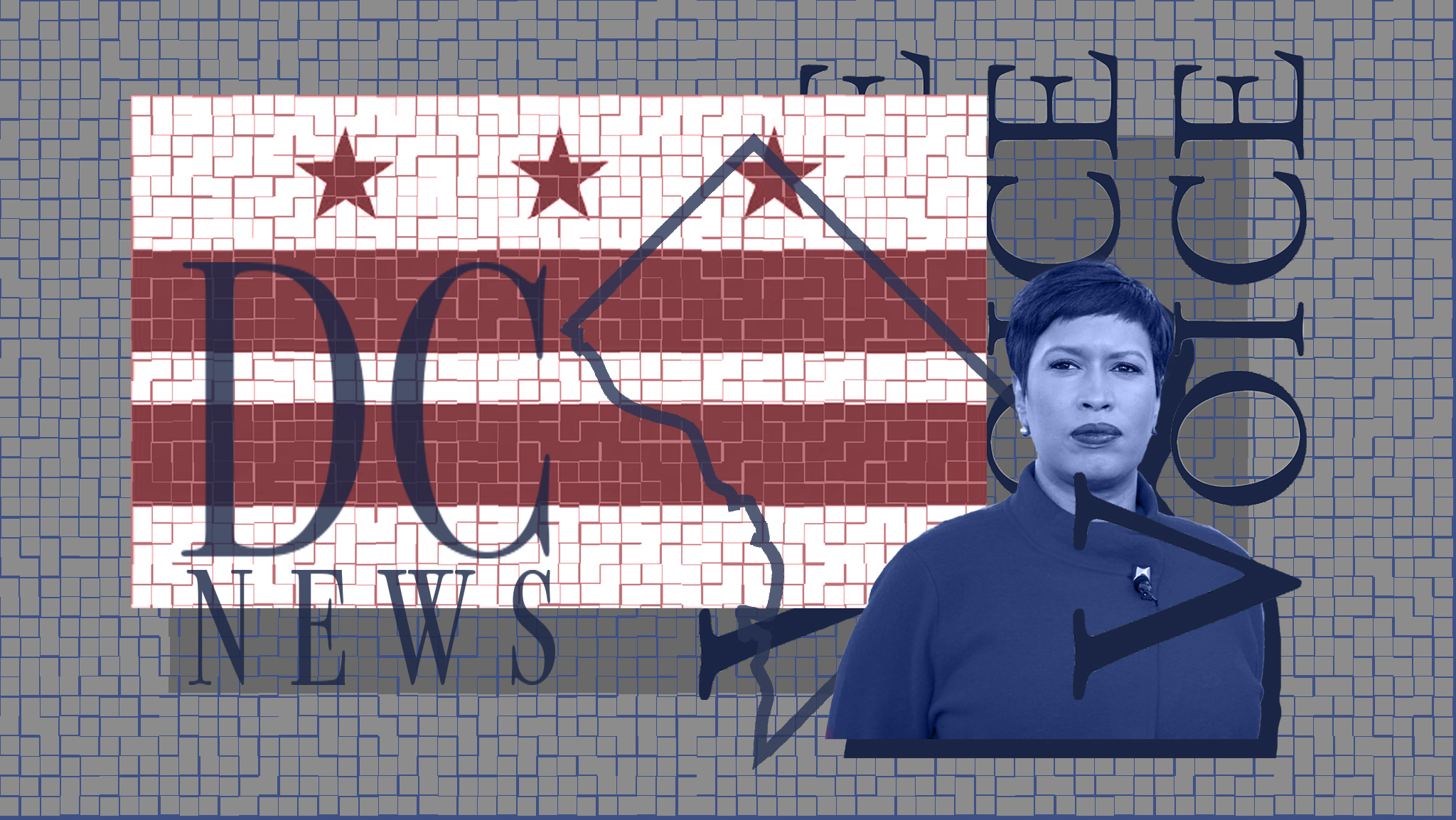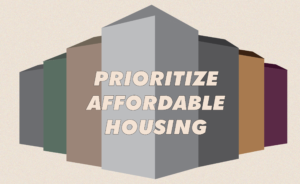Mayor Muriel Bowser surveyed D.C. residents about their priorities for the city’s budget during two public forums held on Feb. 18 and 20, marking the first step in D.C.’s annual budget process. D.C. council members are entering the proceedings frustrated by a sizable budget surplus in 2020 despite ongoing economic hardship during the COVID-19 pandemic.
Survey data will advise the mayor’s office as it prepares its initial budget proposal for the coming fiscal year. That plan, set to be delivered to the D.C. Council by March 31, will be the first draft for deciding how funding will be allocated as the District continues to manage the ongoing pandemic.
The mayor’s proposal is being crafted in the wake of a surprising revelation for D.C. lawmakers: an over $500 million budget surplus. D.C. Chief Financial Officer Jeffery DeWitt announced the city’s unexpectedly strong financial position during a public testimony before the Council on Feb. 3. The information, part of a broader audit called the Comprehensive Annual Financial Report (CAFR), left some council members frustrated that the surplus funds had not been used for more pandemic relief.
“That the district is in such a strong financial position is obviously good news, but looking to the future I think we have to ensure that our projections are not too cautious,” Councilmember Mary Cheh (D-Ward 3) said during the hearing. “Having such large amounts of money—or apparently having such large amounts of money—sitting effectively unused when it could support residents and businesses in need seems unacceptable.”
Up until recently, lawmakers had been operating off of the assumption that the District was in dire financial straits—an assumption grounded in pessimistic economic projections released by DeWitt’s office early in the pandemic. Those projections were used last spring to revise the 2020 fiscal year budget, cutting spending by $722 million to account for expected revenue losses during the crisis. 2021’s budget, also written using the same projections and passed in July, was the first District budget plan to cut spending since the Great Recession.
DeWitt, who drew fire from members during the hearing, defended his office’s caution. “We have been spending a lot of time with every state and all the large cities to lesson-learn together,” DeWitt explained. Like D.C, Virginia also reported an unforeseen budget surplus in 2020. “I don’t want there to be a surplus revenue at the end of the year. That is not our goal.”
The surplus, as DeWitt explained, largely derived from higher-than-expected tax revenues: property tax revenues increased by 5.1 percent, individual income taxes by 3.4 percent, and corporate franchise taxes by 14.3 percent. Although partially offset by drops in sales tax revenues, reflecting a struggling restaurant and hotel industry, the overall increase showed the buoying effect of federal stimulus.
Apart from the increased tax revenues, 2020’s budget surplus also resulted from the D.C. government’s underspending over the course of the year. Approximately $112.8 million dollars, or 1.3 percent of the 2020 fiscal year’s budget, was not spent for various reasons—most relating to unexpected federal funding from FEMA grants and the CARES Act.
Even so, many members worried that those increased revenues did not translate to the situation on the ground, where Black and low-income D.C. residents have been disproportionately affected. “We cannot call this good news unless we’re content with the massive number of residents we’re leaving behind, most of them people of color,” Councilmember Robert White (D-At Large) said in response to the CAFR. “This reflects increasing financial strength for the richest in our city and a bigger funding for our government, but on the other side of these statistics is widespread pain.”
This hardship is laid out in the data. The CAFR includes unprecedented spending for unemployment insurance, totaling $1.57 billion over the 2020 fiscal year. While $970 million of that sum is federal funding, the District’s unemployment reserves have been effectively depleted in eliminating the gap. In order to keep funding unemployment benefits, D.C. has joined over 20 U.S. states and territories in drawing directly from the national treasury.
Moving forward, DeWitt acknowledged the city’s future economic recovery relies heavily upon the COVID-19 vaccine rollout. “There is going to be residual impacts to the restaurant and hotel industry because some of those businesses aren’t going to be here,” he said. “That’s the reality of it.”
As of now the surplus funds would not carry over to the 2022 fiscal year budget currently in development; by law, the excess is evenly distributed to both the Housing Production Trust Fund and the Pay-As-You-Go Capital Fund for infrastructure. Even so, members signaled that they would vote to reallocate the sum to instead cushion the budget deficit over the next four years, hopefully lessening spending cuts in the process.
“It’s possible that when the mayor proposes her next fiscal year budget at the end of next month, that between us we may redirect some of the surplus to cover the $143 million shortfall that currently exists in our current budget, or cover $461.8 million shortfall over the four-year financial plan,” D.C. Council Chairman Phil Mendelson (D-At Large) said during the hearing’s opening. “If we don’t do that we will have to do more cutting.”
However unintuitive it may be, most lawmakers met D.C.’s strong financial standing with frustration—a feeling that is likely to continue once the Council begins considering Mayor Bowser’s next budget proposal.
Councilmember Elissa Silverman (D-At Large) remarked that the gap between D.C.’s financial standing and its residents’ struggles felt irreconcilable. “We have dozens of residents in our emails everyday telling us they’re down to their last 20 bucks—and let me add in it’s been a lot of A Tale of Two Cities. Landlords, real-estate owners are telling me that they can’t collect rent and are gonna go belly up if they can’t get help right now,” she said. “And what’s in our financial audit? A D.C. government that’s flush with cash.”





